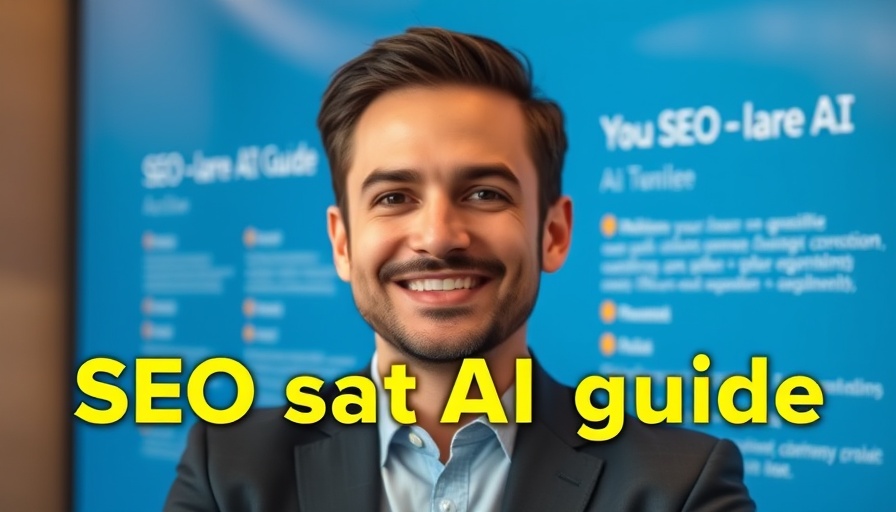
The Changing Landscape of SEO: Why You Should Adapt Now
Gone are the days when optimizing for SEO meant simply adding a few keywords and waiting for Google to work its magic. Today, with the advent of AI-driven search engines, the rules have dramatically changed. As online marketers, business leaders, and SEO enthusiasts, it’s crucial to understand these evolving dynamics. With traditional clicks declining and AI responses tripling, how can brands ensure they remain visible and relevant in this new search paradigm?
AI’s Impact on Search Behavior: Understanding Zero-Click Queries
Brands now face a barrage of challenges due to AI search engines like Google’s AI Mode or ChatGPT. A staggering drop in click-through rates (CTR)—up to 56% for some brands—signals a significant shift in user behavior. In a world of zero-click queries, making your brand recognizable and trustworthy is more important than ever. Invest in strategies that prioritize AI visibility while maintaining the essence of classical SEO.
Building a Strong Digital Foundation: The 82-Point Checklist
Creating a solid online presence is your first step toward capturing brand visibility both in traditional SEO and AI environments. Here’s a sneak peek into the checklist:
- Ensure your brand’s key messages and visuals are consistent across platforms.
- Update or create Wikipedia pages for credibility and reliable references.
- Protect your branded online real estate by filling search results with your own pages.
These steps strengthen your base and serve as crucial signals for both traditional and AI-powered search.
Harnessing E-E-A-T: The Core of Trustworthiness
Experience, Expertise, Authority, and Trust (E-E-A-T) remain guiding principles in creating content that resonates with both users and AI. It’s essential to provide valuable, user-focused content that intertwines well with your brand identity. Consider sharing authentic client testimonials and detailed industry insights; such offerings boost your credibility and trustworthiness.
The Power of Structured Data: Is Schema Markup Part of Your Strategy?
Utilizing structured data is no longer optional; it’s a must. Schema markup helps search engines digest the context of your content, leading to better rankings and the potential for featured snippets—an invaluable asset in conversations led by AI.
Brands should prioritize implementing schema.org markup, enhancing their chances of appearing in rich results. This structured approach not only drives more traffic but positions your brand as a trusted source in the AI search landscape.
Topical Authority: Elevating Your Brand Above the Rest
Merely chasing keywords is passé. Successful SEO strategies now require a focus on topical authority. Create comprehensive content hubs around core topics relevant to your audience, establishing your brand as a go-to source for trusted information. Algorithm changes will favor those who exhibit authority through cohesive content frameworks.
Social Signals: The New Era of Brand Engagement
Brands must étend their engagement strategies beyond traditional SEO. Social platforms are increasingly becoming critical for establishing authority and relevance. Share original, engaging content that reflects both your brand's values and audience desires across the channels where they converge.
Conclusion: Take Action Now!
The key to thriving in this evolving digital landscape lies in blending traditional SEO foundations with new AI-focused techniques. Use the insights from the checklist, embrace E-E-A-T, and leverage AI-driven strategies to enhance your online visibility. Whether you're a seasoned marketer or just starting, don’t let the wave of AI leave your brand behind—start adapting now!
To learn more actionable strategies and insights on maintaining brand visibility in an AI landscape, explore our full library of resources. Embrace the future of SEO with confidence and clarity to stay ahead of competitors.
 Add Row
Add Row  Add
Add 




Write A Comment